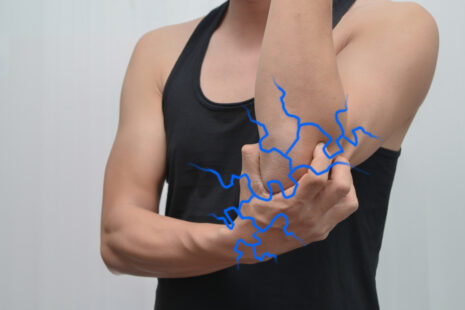Determining whether knee pain is serious or not depends on various factors, including the severity of the pain, the duration of symptoms, any accompanying signs or symptoms, and how the pain affects your daily activities and quality of life.
Here are some signs that your knee pain may be serious and warrant medical attention…
- Severe Pain – If you experience intense, sharp, or debilitating pain in your knee that limits your ability to bear weight or move the joint, it may indicate a more serious injury or condition that requires prompt medical evaluation.
- Swelling and Redness – Significant swelling, redness, or warmth around the knee joint may suggest inflammation, infection, or trauma, which may require medical assessment and treatment.
- Instability or Giving Way – If your knee feels unstable or gives way unexpectedly during activities, it could be a sign of ligament or cartilage damage, such as a torn ligament (e.g., ACL tear) or meniscus tear, which may require medical attention.
- Locking or Catching Sensation – If you experience a sensation of locking, catching, or popping in your knee joint during movement, it may indicate a mechanical problem such as a loose body or meniscus tear that requires evaluation by a healthcare professional.
- Limited Range of Motion – Difficulty bending or straightening the knee joint, or a significant decrease in range of motion, may indicate joint stiffness, inflammation, or structural damage that requires medical assessment.
- Persistent Symptoms – If your knee pain persists for more than a few days or weeks despite rest, home remedies, or over-the-counter pain medications, it may indicate an underlying condition that requires medical evaluation and treatment.
- Previous Injury or Surgery – If you have a history of knee injuries, surgeries, or chronic conditions such as osteoarthritis or rheumatoid arthritis, any new or worsening symptoms should be evaluated by a healthcare professional to prevent further complications.
- Numbness or Tingling – Numbness, tingling, or weakness in the knee or surrounding area may indicate nerve compression or damage, which requires medical assessment to determine the underlying cause and appropriate treatment.
- Fever or Signs of Infection – If you experience fever, chills, or signs of infection such as redness, warmth, or drainage around the knee joint, it may indicate a serious underlying infection or complication that requires immediate medical attention.
If you experience any of these signs or symptoms, it’s important to seek medical evaluation by a healthcare professional, such as a doctor or orthopedic specialist, for a comprehensive assessment and appropriate treatment recommendations. Delaying treatment for serious knee injuries or conditions can lead to further complications and may affect your long-term health and mobility.



